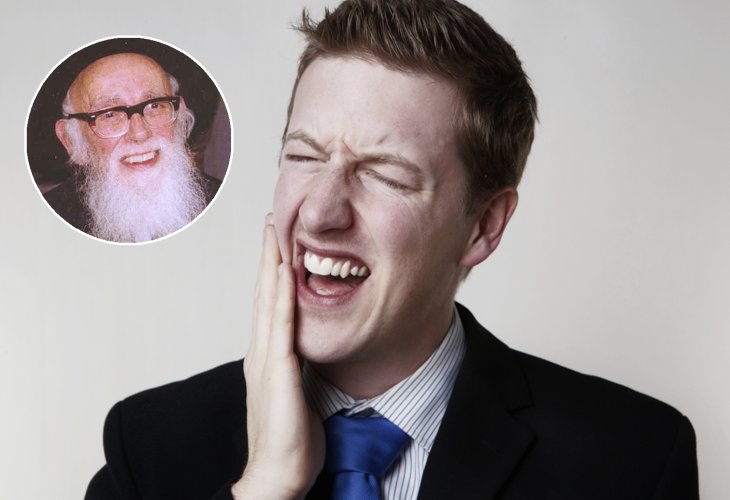Personal Stories
Pain, Panic, and a Rabbi’s Gentle Wisdom on Shabbat
A fearful patient, a quiet whisper, and a reminder that Torah cares about the whole person
 (Photo: shutterstock)
(Photo: shutterstock)It was Shabbat morning when a young man arrived at the home of Rabbi Shlomo Zalman Auerbach, one of the greatest halachic (Jewish law) authorities of our generation. His face was swollen, and his voice trembled. “I’m suffering from terrible tooth pain,” he said. The rabbi calmly listened, asked a few questions, and gave him permission to take a pill to relieve the discomfort, as halachah allows in such cases.
But the man wasn’t comforted. He suddenly cried out, “A pill won’t help me! This is life-threatening! I need a dentist right now to open the tooth, drain the pus, and clean the infection. If not, I could die!”
Rabbi Auerbach looked at him with understanding. From a medical standpoint, it didn’t seem urgent—treatment could likely wait until after Shabbat. But the rabbi sensed something deeper. The man wasn’t just in physical pain. He was terrified. His fear was real and overwhelming, even if not medically justified. And that fear, too, deserved compassion.
With gentle wisdom, Rabbi Auerbach called a local dentist who lived in the Sha’arei Chesed neighborhood. When the dentist arrived, the rabbi said in front of the patient: “This young man feels he’s in a pikuach nefesh situation—his life is at risk. According to his own words, the treatment must happen now.” The dentist began to reply that it could wait a few hours, but the rabbi kindly interrupted him and said, “This is the patient's request.” Then, when the young man wasn’t looking, the rabbi whispered something quietly in the dentist’s ear.
The two left together to the clinic. When they reached the door, the dentist paused. He turned to the patient and said gently, “Listen, my friend. I will do everything that Jewish law allows me to do on Shabbat. But anything beyond that, I cannot do. So if you feel the treatment must happen now, you will need to turn on the lights yourself so we can begin.”
The young man stood frozen. Turning on the lights would mean publicly breaking Shabbat—a serious matter. He hesitated. Then he took a step back. “Actually,” he said, “I think it’s not so bad. Maybe I can wait a few more hours after all.” He smiled sheepishly. “Yes... I’ll be fine until after Shabbat.”
Rabbi Auerbach had known exactly what the young man needed—not just halachic permission or medical advice, but empathy, reassurance, and a gentle nudge to calm his fear. It’s a reminder that halachah doesn’t only deal with the physical world—it also respects the emotional one. And when Torah meets compassion, healing begins.

